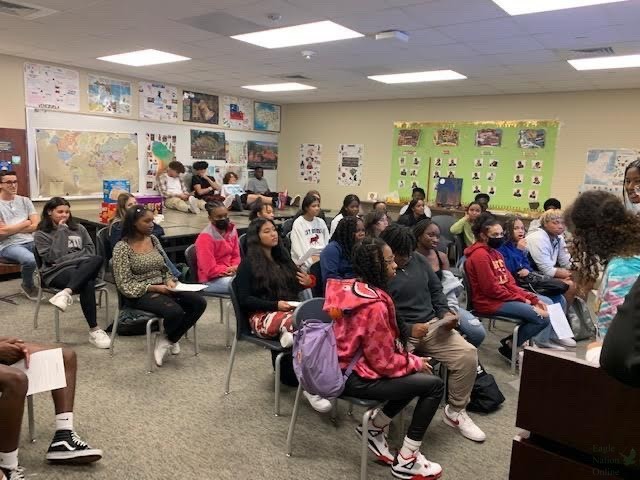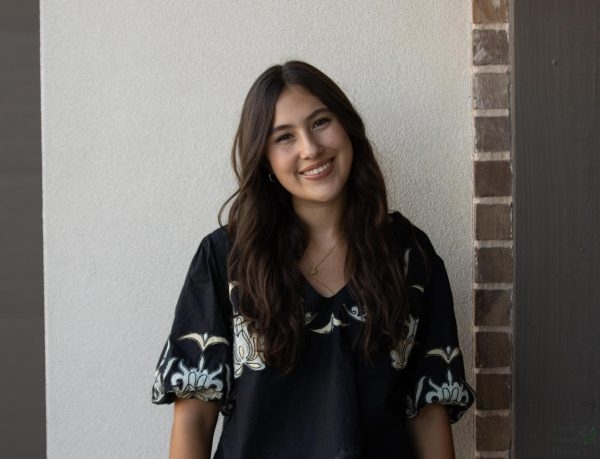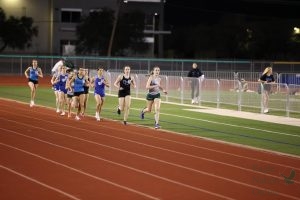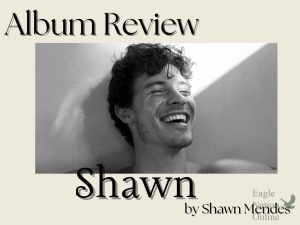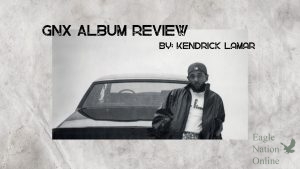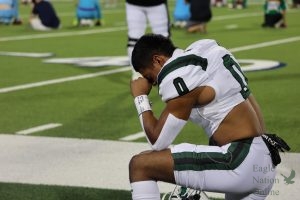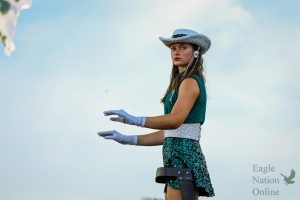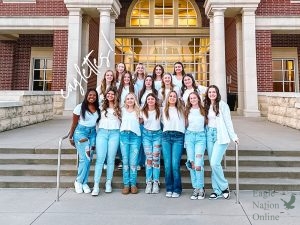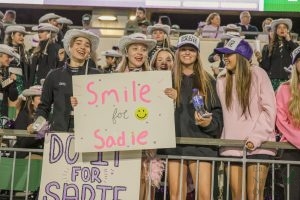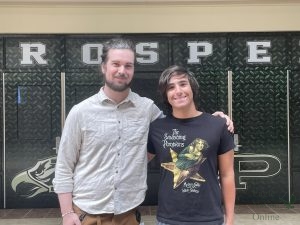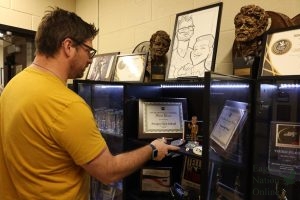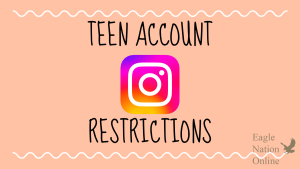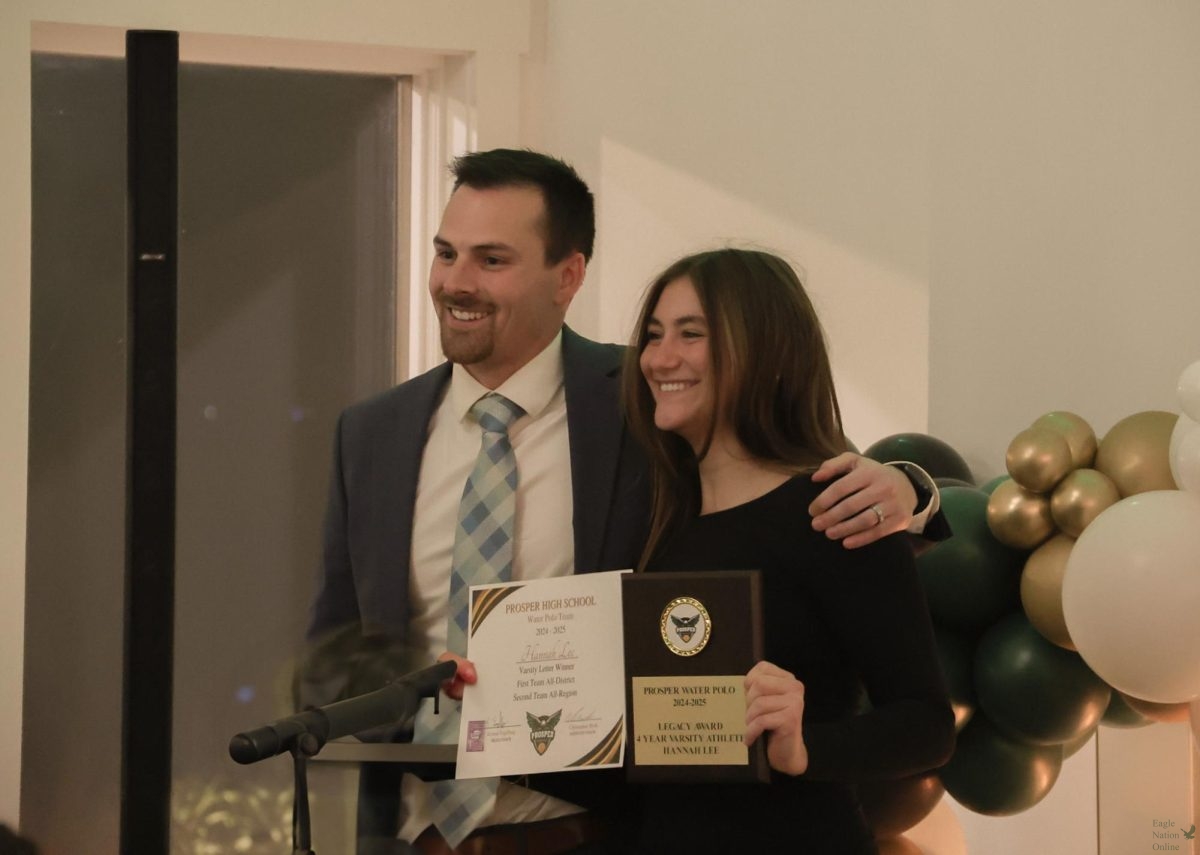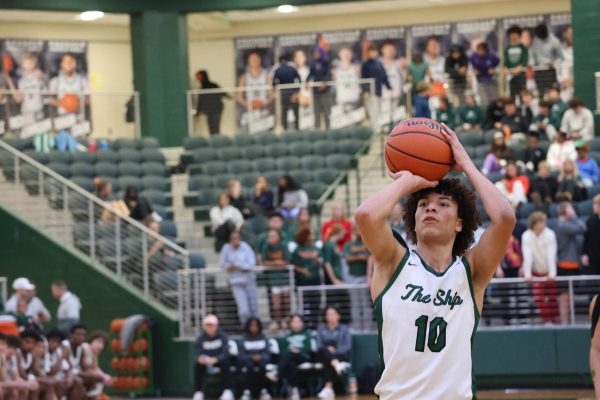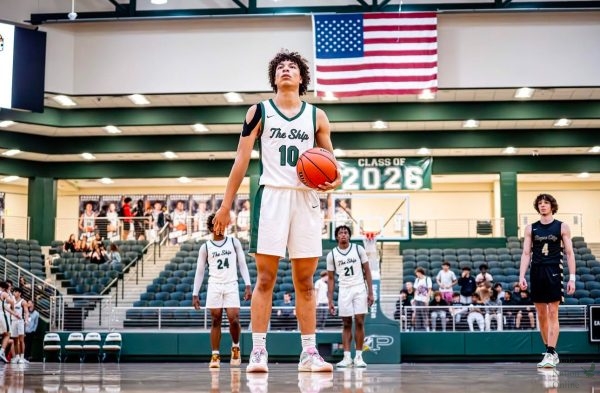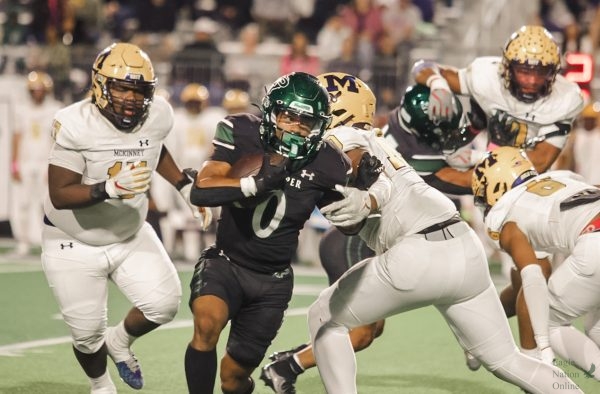Black Student Union ‘debunks’ stereotypes
The Black Union Society members listen as the concil members make announcements. The club is new to the high school this year. The club meets every other Monday after school.
October 25, 2021
“We are not your stereotype.”
The Black Student Union members use this motto by their organization to “end the cycle” of preconceived notions of African-American students. The next club meeting is Nov. 1 in the LGI.
“We wanted to create a safe place for all,” junior and treasurer of the club Tatum Casey said. “There are people who aren’t black who are in the club because they want to learn. There’s nothing wrong with that. We invite everyone to come and learn from us. Because, at the end of the day, we want to create a safe and loving environment for everybody.”
The club held its first meeting Sept. 13, and meets every other Monday after school for an hour and a half. Shelly Patterson hosted the first two meetings in her room – 2231. By the second meeting, the turnout was “far more than anticipated,” and, due to the club fair and members spreading the word, recently surpassed 50 students. This increase in volume led to all BSU club meetings being moved in the LGI after school from 4:15 to 5:45 p.m.
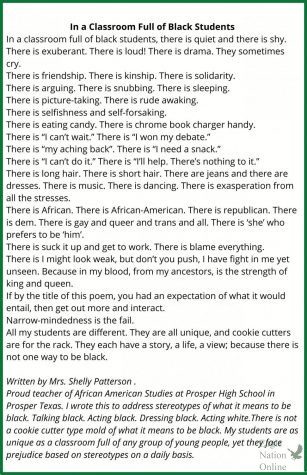
The club officers include junior Victoria Montgomery as president, junior Lena Rodgers as vice president, sophomore Avery McIntosh as secretary, Casey as treasurer, junior Kennedi Laur as social media manager, junior Zoey Lee as event coordinator and academic adviser and junior Zarah Leivers as co-event coordinator.
“I don’t want there to be a misconception that our officers are the ones that decide what we talk about,” Lee said. “Of course, we start something, but the discussion brings in everything else that we decide to put into our meetings. Like, recently, there was a student that showed us a podcast that he wanted us to listen to and debate about.”
The officers plan on listening to the episodes of Southlake by NBC News, and dissecting each of them during club meetings. The members represent the black population of the school, and the council members guide the club. But, in unison, those entities as a whole bring attention to current issues.
Patterson, along with Montgomery’s mother, serves as a sponsor to the club, helping with funding and organization.
“They (BSU board members) felt comfortable and safe to ask me to sponsor the club, and I was very honored,” Patterson said. “So that they could have a club to represent their voice and some of the issues that they would like to have more attention drawn to.”
The club contains a family environment, giving people the ability to speak freely. The officers said the response has been one of support, commonality and respect for the other members.
“It’s frustrating because we’re supposed to go to school, and you’re here most of the time,” Montgomery said. “If you don’t feel comfortable and respected in a place that you’re supposed to be all the time, then no one wants to do anything. No one wants to interact with anyone. No one wants to be here.”
The officers, together, lead discussions on problems and topics related to black representation. For example, during one meeting, they discussed the topic question, “Do you think everyone is treated equally here at Prosper?” Members got into groups, discussed their personal experiences and then shared with the whole group. Answers ranged from the feeling of exclusion to lack of encouragement academically.
“Demand that teachers teach at a high level,” Patterson said. “Everyone is capable. Don’t let teachers get away with assuming that you want the lowest level of thinking.”
The members brainstorm ways they can do their part to fix the issues at the school, while they said their goal is to organize ways to celebrate black culture during Black History Month. This includes having posters and announcements on the intercom. Although the school attempts to accomplish these acts, officers said they thought direct actions by the members will “ensure accurate, maximum representation.”
“The majority of the quotes (on posters hung up) were all about Martin Luther King Jr. and basketball players, which doesn’t define everything that we have in our culture,” Rodgers said. “We have so much more to offer. We’re not just basketball players, and we’re not all MLK. We’re more than just the basic known.”
After discussions between members, the group switches their attention to academic activities. Members have the ability to receive help from Patterson, any of the officers and their fellow members to do homework and study to reach their full potential.
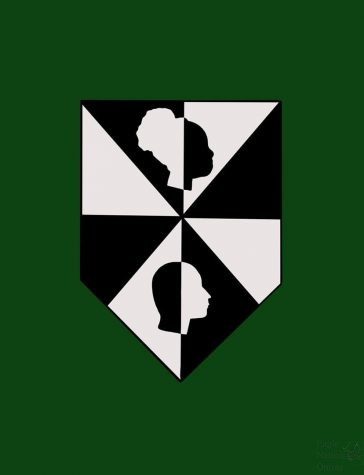
“There’s a whole arm of the club that is all about academic advising,” Patterson said. “Even though there are such services offered at PHS, the comfort level and the feeling of being safe to be vulnerable with what you actually need help with has been uniquely found within the Black Student Union.”
The establishment of a safe environment with challenging discussions also bridges “strong ties” between the members, as similar experiences are discovered.
“I’m sure all of you can agree that before the Black Student Union, there were just groups of black people, and we didn’t all really know each other,” Lee said. “I think it’s super important that we all have that bond through the Union, that black students can know each other and find each other, especially in this predominantly white school.”
According to U.S. News, 65.1% of the students at Prosper are white, and 9.9% are black.
“When Dr. Burdett says we’re a family, we’re really trying to embody that,” Montgomery said. “We want to be a family in this club, and we want to show people that. I kind of feel like we are (family.) Because everyone in the council is a black woman, I feel like we’re all like the big sisters to the members.”
For updated club information, search username: @prosper_bsu on Instagram, Tiktok and Twitter


